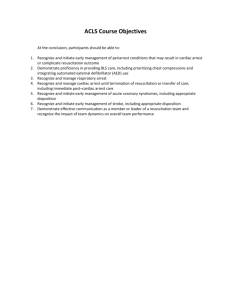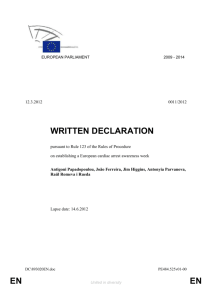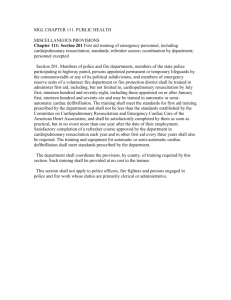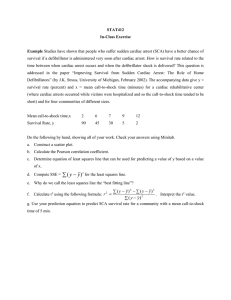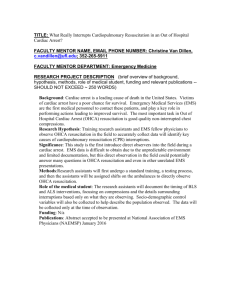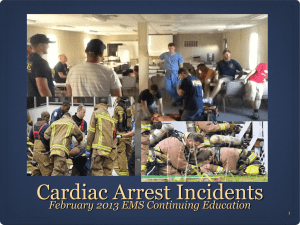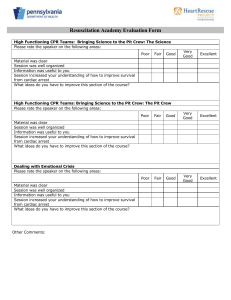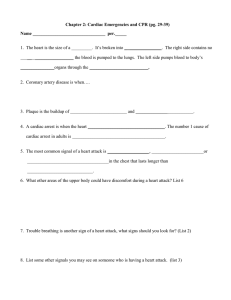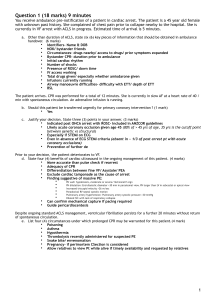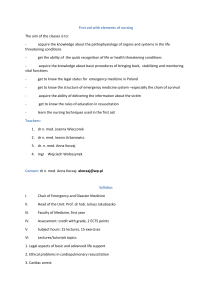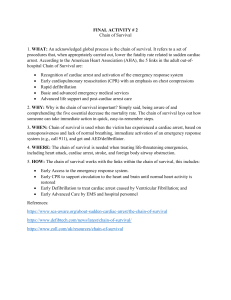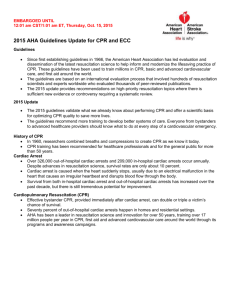ADVANCES IN CARDIOPULMONARY
advertisement
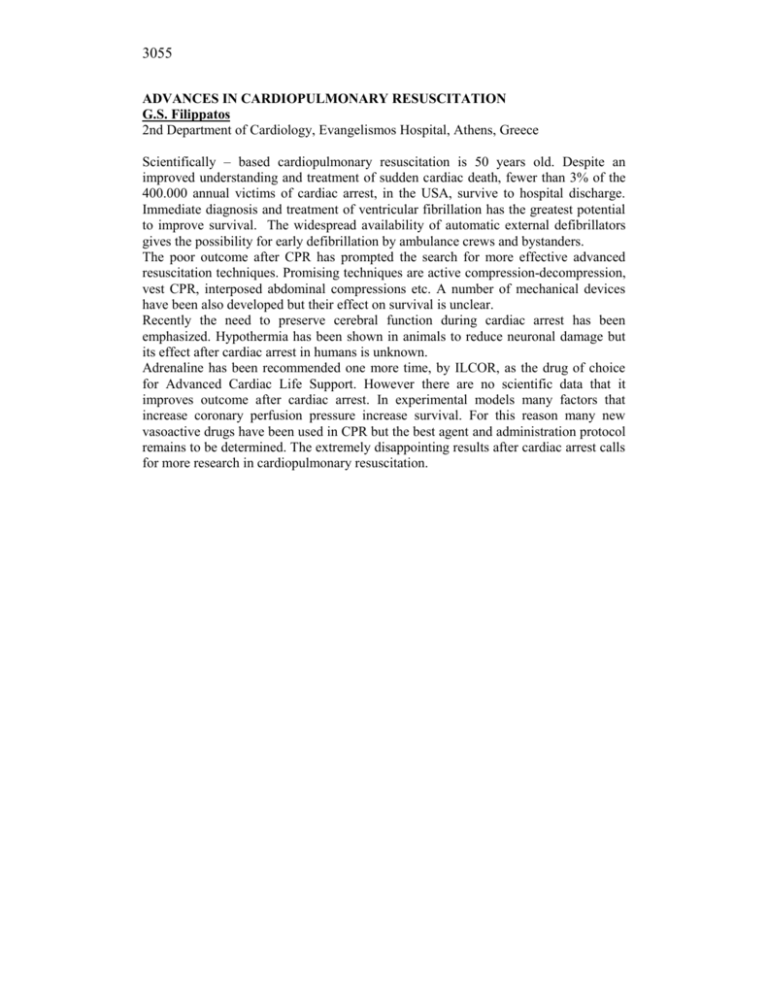
3055 ADVANCES IN CARDIOPULMONARY RESUSCITATION G.S. Filippatos 2nd Department of Cardiology, Evangelismos Hospital, Athens, Greece Scientifically – based cardiopulmonary resuscitation is 50 years old. Despite an improved understanding and treatment of sudden cardiac death, fewer than 3% of the 400.000 annual victims of cardiac arrest, in the USA, survive to hospital discharge. Immediate diagnosis and treatment of ventricular fibrillation has the greatest potential to improve survival. The widespread availability of automatic external defibrillators gives the possibility for early defibrillation by ambulance crews and bystanders. The poor outcome after CPR has prompted the search for more effective advanced resuscitation techniques. Promising techniques are active compression-decompression, vest CPR, interposed abdominal compressions etc. A number of mechanical devices have been also developed but their effect on survival is unclear. Recently the need to preserve cerebral function during cardiac arrest has been emphasized. Hypothermia has been shown in animals to reduce neuronal damage but its effect after cardiac arrest in humans is unknown. Adrenaline has been recommended one more time, by ILCOR, as the drug of choice for Advanced Cardiac Life Support. However there are no scientific data that it improves outcome after cardiac arrest. In experimental models many factors that increase coronary perfusion pressure increase survival. For this reason many new vasoactive drugs have been used in CPR but the best agent and administration protocol remains to be determined. The extremely disappointing results after cardiac arrest calls for more research in cardiopulmonary resuscitation.
